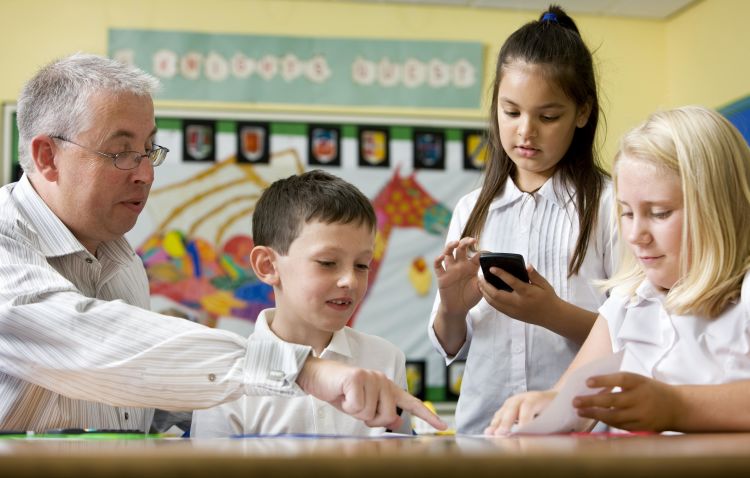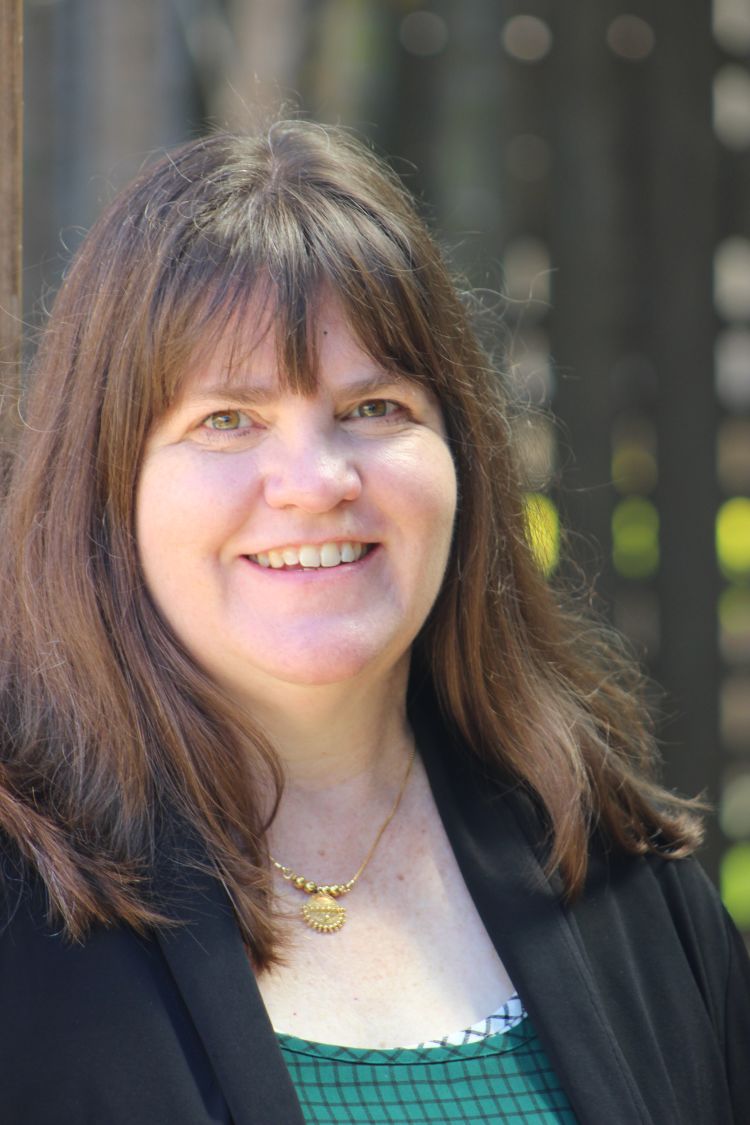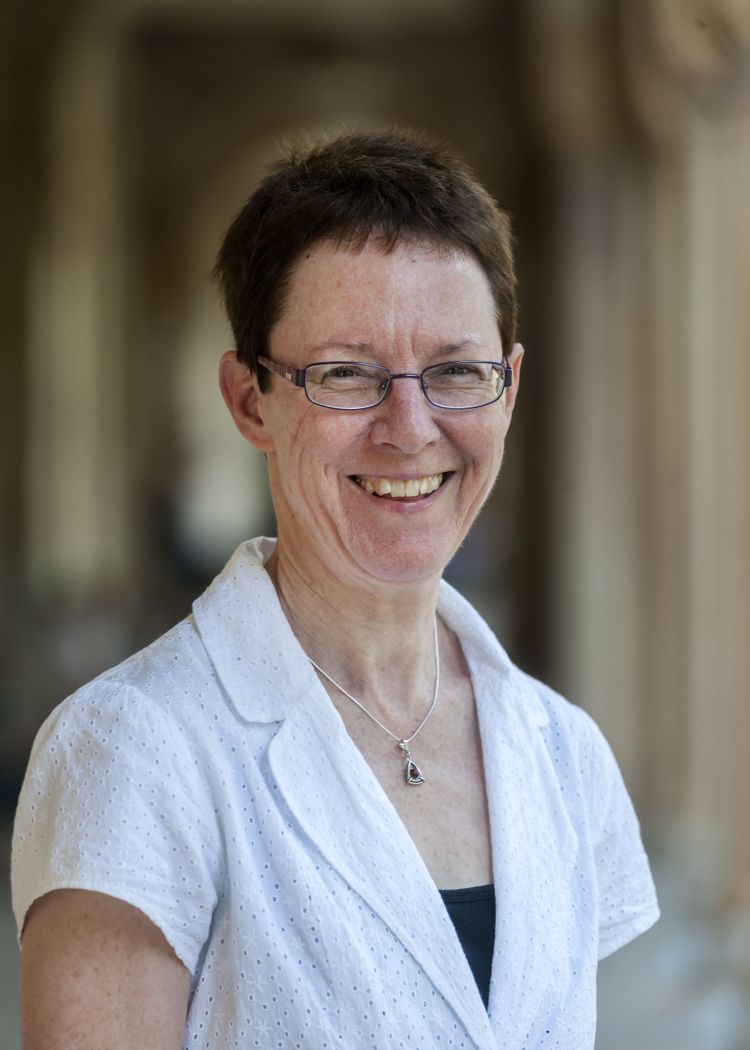Turning the tables for maths teaching
UQ researchers are helping teachers make mathematics more engaging and accessible for students, showing how it can be a productive and rewarding tool for life.
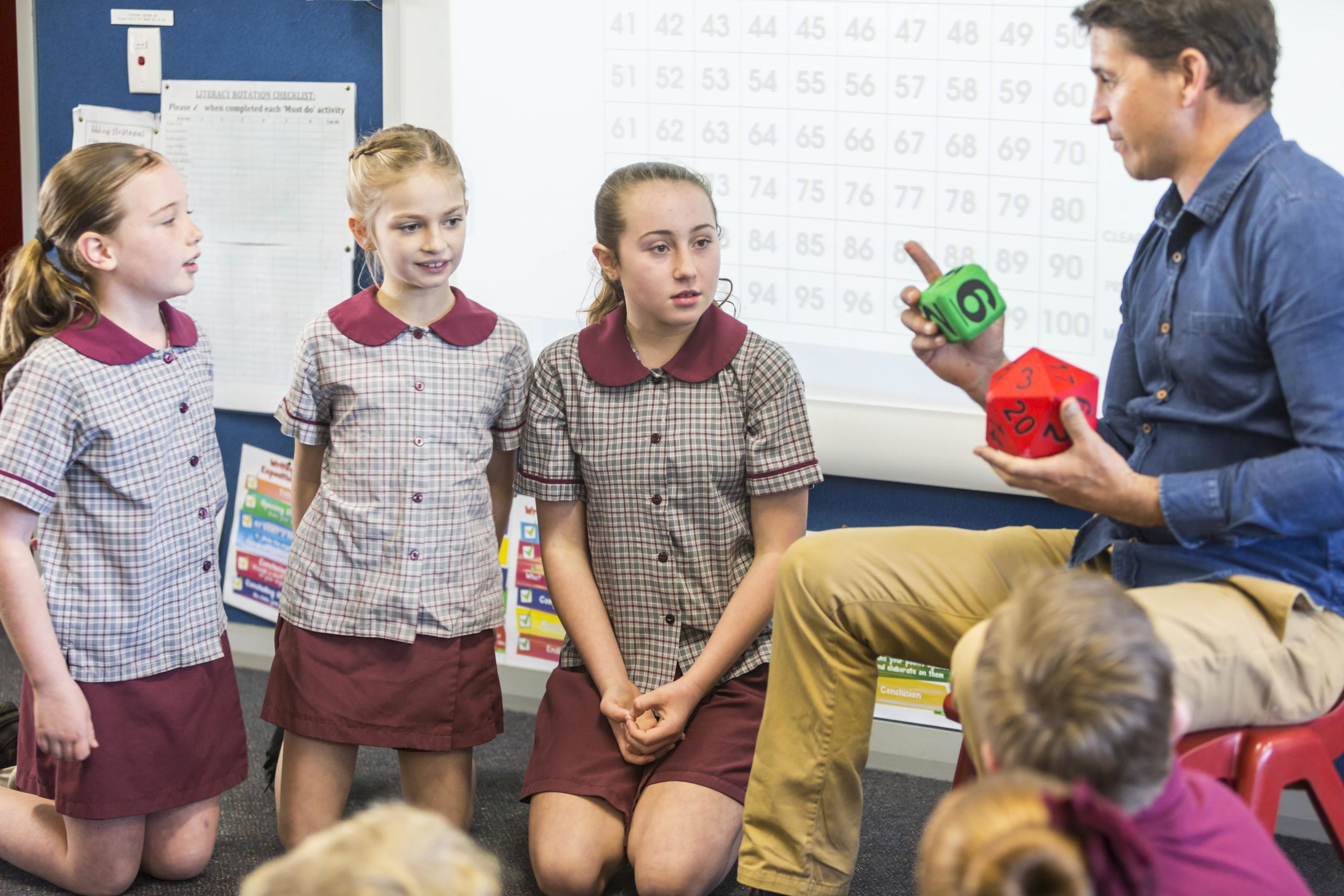
A Year 8 Health and Physical Education class enthusiastically deconstructs a Barbie Doll. They measure its arms, legs, torso and head, and then calculate these measurements as a proportion of the doll’s overall height. Comparing these measurements with their own, they discuss the question: when scaled up to life-size, do Barbie’s proportions really represent a healthy human body?
Traditionally, numeracy and mathematical inquiry have not been so enthusiastically and broadly embraced in the school curriculum. However, two long-term research projects led by researchers at UQ’s School of Education are turning the tables for mathematics teaching and learning, supporting teachers to make mathematics more relevant for students – just like in the Year 8 exercise described above.
Over the last two decades, this significant body of research has not only led to a suite of research-informed classroom resources and professional development opportunities for hundreds of Australian mathematics teachers, but is now helping cement numeracy as a fundamental consideration for all teachers across every subject – ensuring every student develops this vital skill.
An inquiring mind
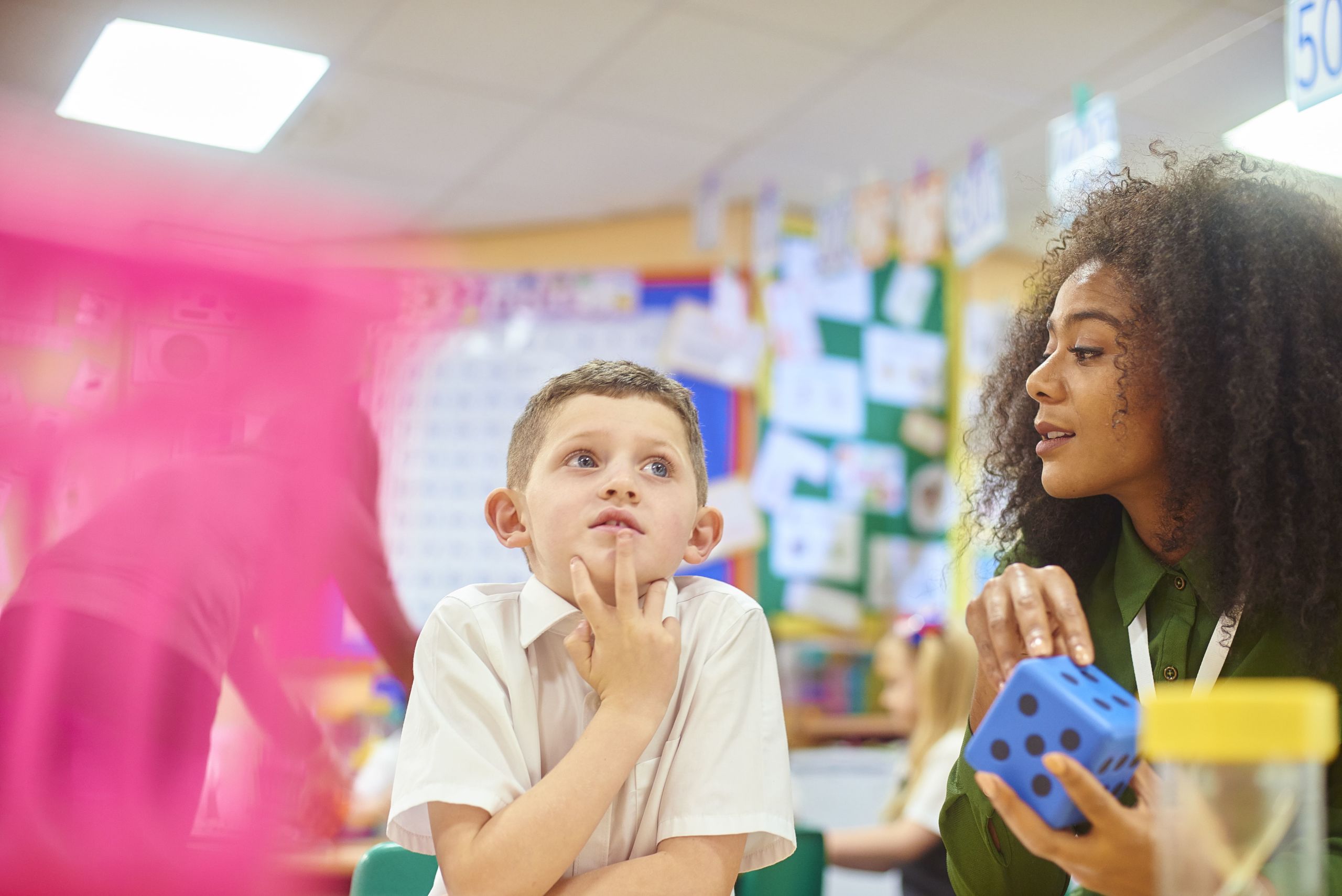
For Associate Professor Katie Makar, when it comes to teaching mathematics inquiry, a little ambiguity can go a long way.
“Mathematics in schools typically focuses on facts and procedures, and students rarely have an opportunity to apply mathematics to messy, everyday problems,” Associate Professor Makar says.
“They don’t recognise mathematics outside textbooks, and find it irrelevant to their lives.
“This is where mathematical inquiry has an opportunity to help students – building their capacity to solve complex, ambiguous problems that rely on mathematical evidence.”
As a former mathematics teacher herself, Associate Professor Makar understands the challenges teachers face, and her research focuses on ways to make mathematical inquiry more accessible to teachers.
“I wanted to work closely with teachers and teacher-researchers to make mathematical inquiry mainstream,” Associate Professor Makar says.
“The aim is not to replace traditional mathematical approaches, but to build a more balanced approach to teaching and learning mathematics, where traditional approaches are not seen as being at odds with inquiry approaches.”
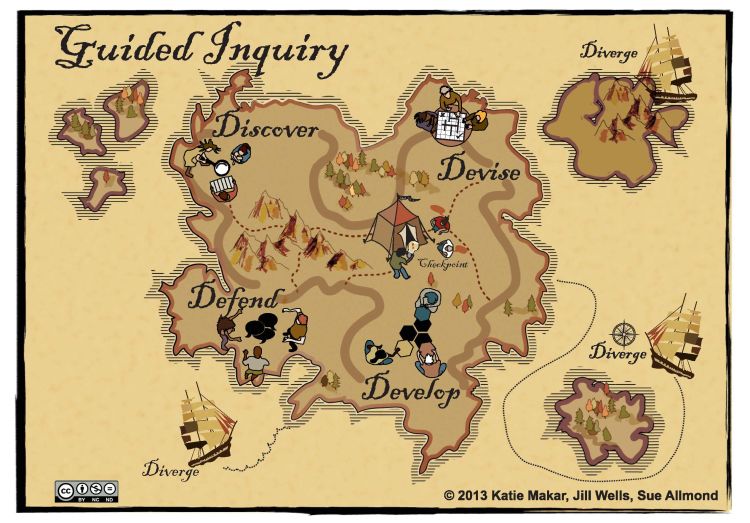
A guided inquiry framework co-developed by Associate Professor Makar.
A guided inquiry framework co-developed by Associate Professor Makar.
Through a longitudinal study and a number of ARC projects, Associate Professor Makar and her team have observed over 1500 lessons over the past decade and have analysed several hundred of these using the Productive Pedagogies Framework to understand how teachers’ practice evolves over time as they gain experience teaching mathematical inquiry.
They've developed inquiry lesson frameworks that were used by the Department of Education to implement inquiry lessons in all Queensland schools as part of the Curriculum into the Classroom (C2C) program, and are now available to thousands of teachers across three states.
The team also developed units for the Australian Academy of Science’s ‘reSolve: Maths by Inquiry’ program, and for the Thinking Through Mathematics teacher-resource books and related website IMPACT: Inquiry Maths Pedagogy in Action, making their professional resources more accessible to teachers.
Associate Professor Makar says involving teachers has been critical to the team’s success.
“Because teachers are central to developing the research outcomes, our research has been translatable into classrooms,” she explains.
“We’re very proud of the impact it has had in helping teachers adopt and adapt inquiry pedagogies into their own classrooms for the benefit of students.”
It all adds up

Professor Merrilyn Goos is also focused on supporting teachers to make mathematics more accessible for students, although this time in the field of numeracy.
She leads the ARC Discovery Project ‘Embedding Numeracy Across the Whole Curriculum’, which aims to train teachers to spot numeracy teaching opportunities in every subject, not just mathematics.
“We wanted to develop clear exemplars and guidelines for teachers to recognise the numeracy demands that are inherent in all subjects they teach, and to be able to exploit numeracy learning opportunities in these subjects,” Professor Goos explains.
“The multifaceted nature of numeracy in the 21st century requires students to experience using mathematics in a range of contexts and in all school subjects.
“The Australian curriculum now lists numeracy as a general capability in all learning areas, so embedding numeracy across the curriculum is a responsibility for all teachers.”
The project utilises a numeracy learning model that allows teachers to plan lessons, create numeracy tasks in their own subject areas, and track their own learning over time.
Professor Goos, who is currently Director of EPI*STEM at the National Centre for STEM Education at the University of Limerick, Ireland, developed the model based on her own experience as a mathematics teacher educator, where she identified there was a gap in the resources available.
“National interest in numeracy education from a policy perspective started in the late 1990s, but there were no clear guidelines for teaches on what to do in the classroom,” she says.
“I was dissatisfied with the definitions of numeracy, so I created my own model to use with teachers.”
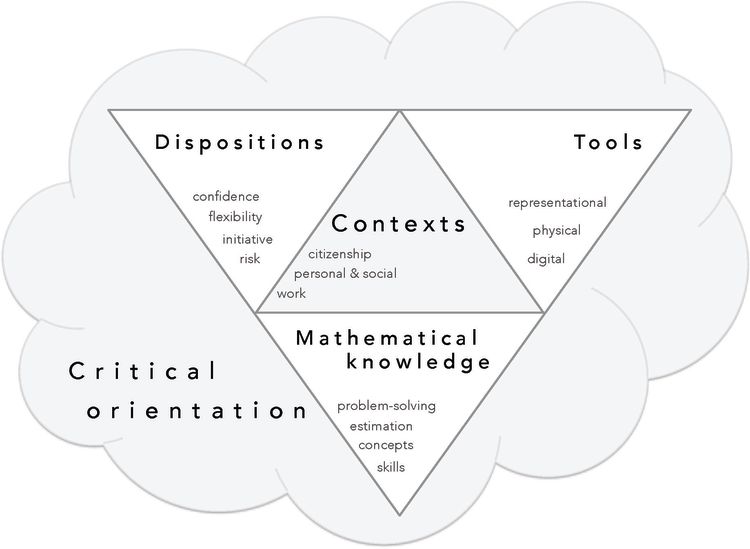
The numeracy learning model developed by Professor Goos (included in Numeracy across the curriculum: Research-based strategies for enhancing teaching and learning)
The numeracy learning model developed by Professor Goos (included in Numeracy across the curriculum: Research-based strategies for enhancing teaching and learning)
Professor Goos says the model and her team’s professional development method have been validated across diverse school settings.
“We’ve worked with teachers in rural, regional and city schools; teachers in a wide range of school subjects; and teachers who are newly graduated, moderately experienced, and veterans,” she says.
“The numeracy learning model has been validated in primary and secondary schools in three states, and has been adopted as a curriculum development framework in Queensland and New South Wales.
“The model has also made an impact internationally, informing reviews of OECD student assessment and adult competency programs.”
Teaching numeracy to Year 9 Design and Technology students at Cavendish Road State High School.
Following the program’s success, the research is now being translated into a teacher education textbook, which Professor Goos says will be used by teachers and trainee teachers across the country.
“National standards used to accredit teacher education programs require that graduates know how to embed numeracy in all the subjects they teach,” Professor Goos says.
“We are the only researchers in Australia working in this field, so all our findings are going into this book to support teacher education programs in every university in Australia.”
The story so far:
2006: Associate Professor Makar is awarded a UQ Early Career Researcher grant for Investigating Teachers’ Cycles of Statistical Inquiry in Middle Years Teaching and Learning.
2007: Associate Professor Makar is awarded her first ARC (Linkage) Project for Elaborating a model of learning to teach mathematical inquiry.
2007: Professor Goos develops the numeracy learning model and presents it for the first time to teachers at the South Australian Literacy and Numeracy Expo.
2009: Professor Goos and her team design a professional development approach for embedding numeracy across the curriculum in South Australian schools.
2010: The Thinking through mathematics teacher resource books co-authored by Associate Professor Makar are published.
2010–12: Professor Goos and her team validate their numeracy model and professional development approach with Brisbane Catholic Education schools.
2012: Associate Professor Makar and her team help design mathematics inquiry lesson plans for the Queensland Government’s implementation of the Australian curriculum for teachers.
2012: Professor Goos and team are awarded an ARC Discovery Project for Embedding numeracy across the whole curriculum.
2014–15: Professor Goos and her team work with the Queensland College of Teachers to develop a suite of online resources for teachers embedding numeracy across the curriculum, including a series of videos (funded by the Queensland College of Teachers).
2016: Associate Professor Makar and her team are invited by the Australian Academy of Science to write and field trial 10 inquiry units for its ‘reSolve: Mathematics by Inquiry’ project.
2017: The IMPACT: Inquiry Maths Pedagogy in Action website is launched.
2017: Associate Professor Makar is awarded her fifth ARC (Discovery) Project for Developing classroom norms of inquiry based learning in mathematics.
2018: Professor Goos and her team publish Numeracy across the curriculum: Research-based strategies for enhancing teaching and learning for use in initial teacher education programs.
(Image credit for opening page: Getty Images: davidf; Image credit for 'The story so far': Getty Images: track5. Words by Alan James.)
Contact details:
Associate Professor Katie Makar, School of Education
Email: k.makar@uq.edu.au
Phone: +61 7 3365 7949
Web: https://researchers.uq.edu.au/researcher/1495
Professor Merrilyn Goos, School of Education
Email: m.goos@uq.edu.au
Web: https://education.uq.edu.au/profile/157/merrilyn-goos
This article was last updated on 14 November 2018.

